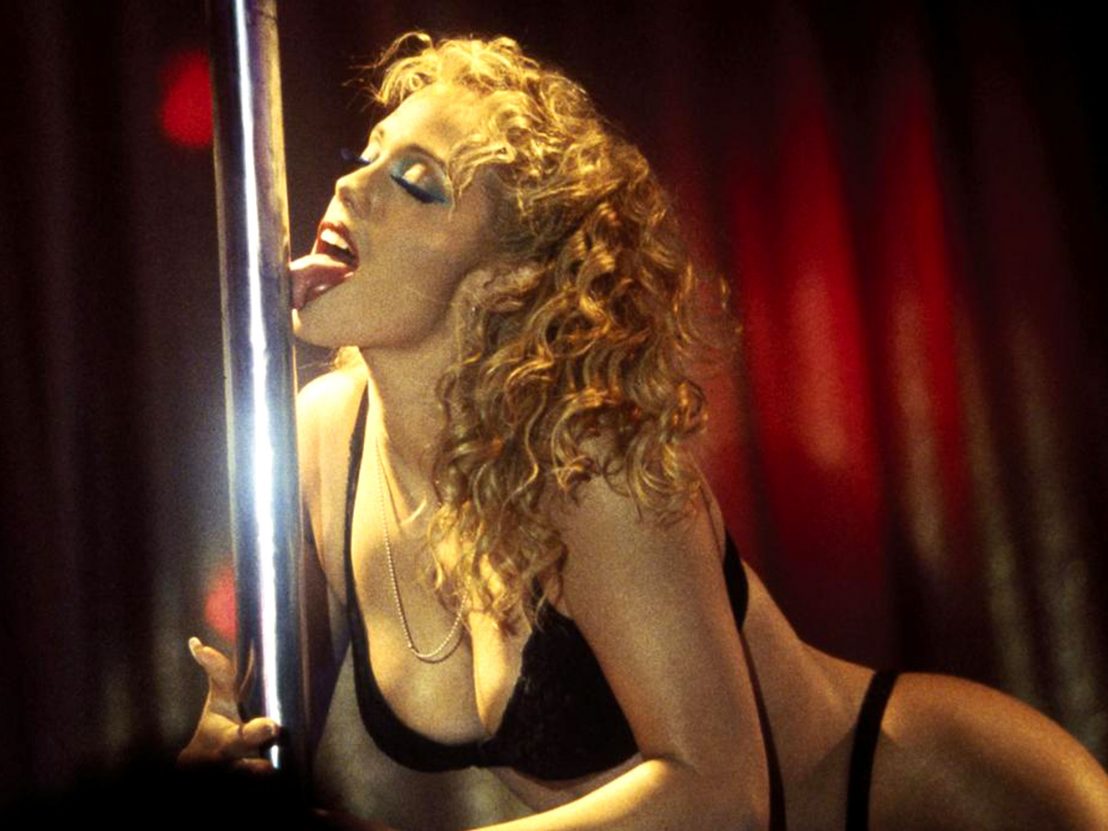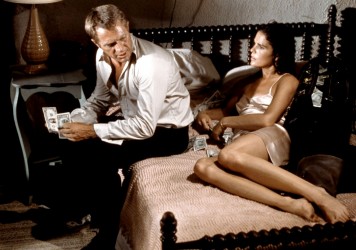
When Elle premiered at the 2016 Cannes Film Festival, it cemented director Paul Verhoeven’s knack for the unexpected by receiving raves instead of boos. Still, the synopsis – multiple rapes, pornographic video games, vicious humour – suggested a ticking think-piece time bomb waiting to explode. Not only has a backlash not materialised, but Isabelle Huppert’s sensational lead turn has been earning major awards recognition.
Historically speaking, though, Verhoeven’s movies wreak havoc. In his native Netherlands, Verhoeven’s box office takings were only as big as the protests; fleeing to America, his subversive blockbusters struck a collective nerve at the multiplex. But with Elle it seems audiences have finally caught up. So what else did they miss? Here, we examine the mischievous auteur’s most controversial moments and attempt to defend the indefensible.
The charge: Humans exterminate space bugs in a brainless sci-fi that supports the right-wing ideology of Robert Heinlein’s source novel.
The defence: Many misconstrued Verhoeven’s satire of American jingoism, despite the prominent death toll. In its especially fascist future, Earth faces an alien invasion and completely dehumanises its enemy (“the only good bug is a dead bug”). That parallel should’ve been enough.
The military – who look like they eat Breitbart for breakfast – are cheerily prepared to die for their planet, which seems to be one single propaganda-loving, Nazi-uniformed nation. When asked why the anti-war message was a slow-burn, the director reasoned, “Perhaps Iraq has made it more understandable.”
The charge: Homophobia and misogyny in a malicious tale of horny motorcyclists.
The defence: A provocateur at heart, Verhoeven witnessed the monstrous mainstream success of his Dutch films, and Spetters was him prodding the bear. It led to the National Anti-Spetters Committee, which denied him funding for future projects and ousted him towards America.
But Spetters dares to explore the depths of humanity, and – rightly or very, very wrongly – audiences lapped it up. Until Steven Spielberg saw it, Verhoeven was allegedly a forerunner to direct Return of the Jedi. Verhoeven’s explanation: “I suppose he was scared that the Jedi would immediately start fucking each other.”
The charge: Upon a leak of the script, LGBT activists picketed the production for its depiction of bisexual women as sociopaths.
The defence: Verhoeven’s erotic thriller knowingly toys with genre stereotypes. Plus, Sharon Stone comes out on top (figuratively and literally) as a femme fatale confidently expressing her sexuality. Her one-liners are sharper than an ice pick, and she reduces men to a sweaty mess by simply adjusting her sitting position.
As for the famous leg-crossing incident, things start to get a little murky: Stone insists she was tricked into believing her private parts would not be exposed, whereas Verhoeven claims it was pre-approved and thus shot without the male cast in the room.
The charge: Eric forces himself upon his ex-girlfriend, Olga, with whom he later shares a romantic reconciliation.
The defence: As with Elle, the framing of sexual assault here is more layered than a one-sentence summarisation, and wide responses to the film reflect the gulf between Hollywood and European cinema. In America, Turkish Delight played in porn theatres.
It is, astonishingly, the biggest film in Dutch history. Its full-frontal nudity certainly helped, but Verhoeven frequently – and deliberately – dampens the mood. Eric is not portrayed as a likeable lead, and there’s no upbeat narrative (unless you misinterpret the prior projectile vomiting, maggots and harassment).
The crime: Youths of the World War Two Dutch resistance, including real-life figure Erik Hazelhoff, aren’t painted as clear-cut heroes.
The defence: Biopics don’t have to be sycophantic. We see – and are made uncomfortable by – the humanisation of collaborators (including a Dutch teen who assists the Gestapo to rescue his Jewish girlfriend), while Erik enjoys a tango with a Nazi. Without these nuances, the drama would be redundant.
If anything, Verhoeven felt he was too restrained: Starship Troopers cultivates the anti-war theme, and Black Book dives further into taboo World War Two romances. “Erik Hazelhoff was not anti-fascist,” Verhoeven has clarified, “he was still going to Germany to pick up nice German girls.”
The crime: A flabbergasting, trashy mess that sexually humiliates Jessie from Saved by the Bell.
The defence: With its lurid colours, OTT direction and unsexy hedonism, Showgirls is a venomous attack on Vegas (and America at large), a cesspit where everything is about money. To dismiss the film as soft porn would be to ignore its bleakness: the main currency is sex, women must sell their bodies to make rent, and Molly (the only kind-hearted character) receives the darkest ending of them all.
America wanted mindless nudity; what it got was a stern telling off. Two decades later, the seven-time Razzie winner is now considered a classic. Given that delayed appreciation, Showgirls is now considered by many to be the definitive Verhoeven film.
Published 7 Mar 2017

Isabelle Huppert and Paul Verhoeven reunite to potent effect in this sly, caustic social critique.

By Matt Thrift
The outspoken Dutch filmmaker discusses his triumphant return to cinema, Elle.

Is it possible for women to love movies which promote a regressive, misogynistic worldview?